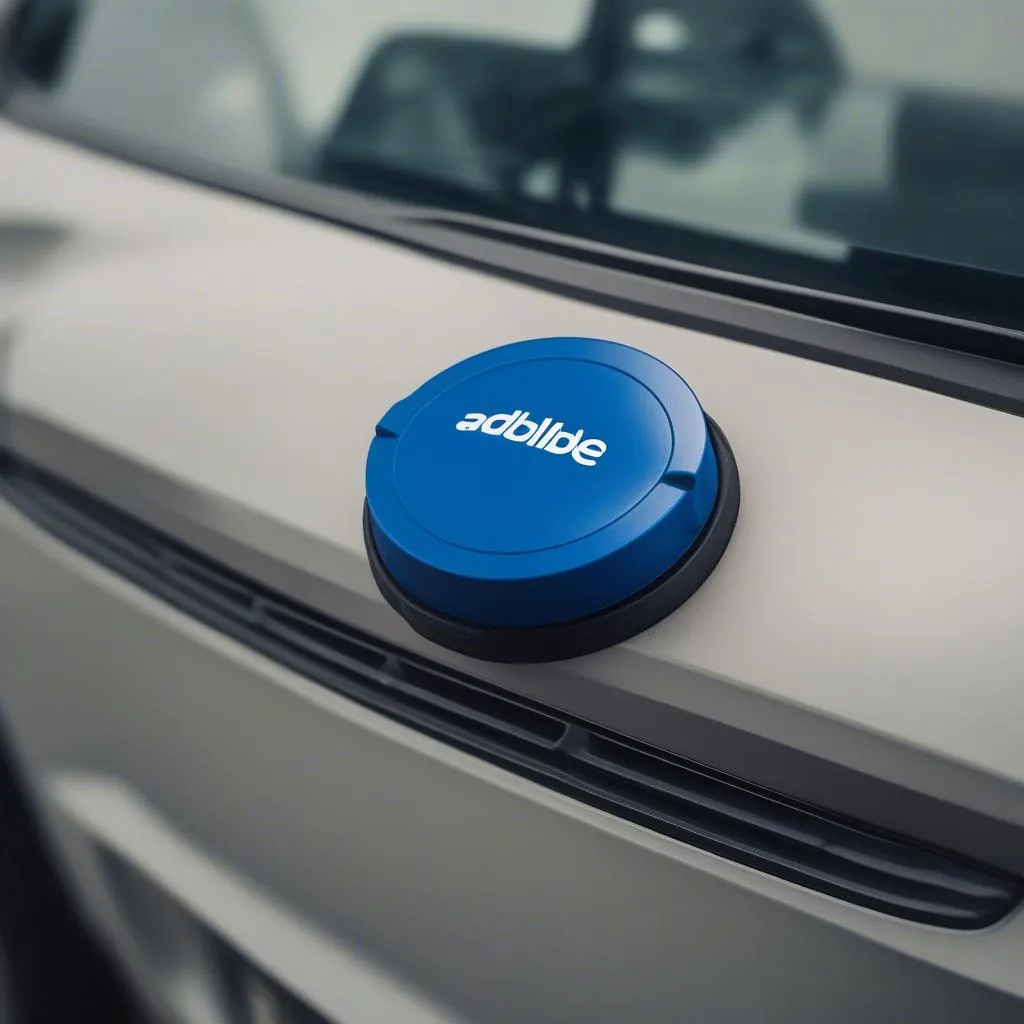Experiencing a car anti-theft system lockout can be incredibly frustrating. It usually happens at the most inconvenient time and can make you late for work or an important appointment. This guide will walk you through the possible causes, symptoms, and solutions for unlocking your car’s anti-theft system.
Understanding Car Anti-theft Systems
Car anti-theft systems have become increasingly sophisticated, evolving from simple key-and-lock mechanisms to complex electronic systems designed to deter even the most determined thieves. These systems utilize various technologies such as immobilizers, alarm systems, and GPS tracking to prevent unauthorized access and theft. While these advancements are crucial for vehicle security, they can sometimes lead to unexpected lockouts and frustrations for vehicle owners.
“Modern vehicles utilize a network of electronic control units (ECUs) that communicate with each other to ensure proper functioning,” explains automotive electronics expert Dr. Emily Carter in her book, “Automotive Electronics and Control Systems”. “When an anti-theft system detects an anomaly, it can disrupt this communication, leading to a lockout situation.”
Common Causes of Anti-theft Lockouts
Before we delve into the solutions, it’s essential to understand the common culprits behind these lockouts:
1. Dead Car Battery: A weak or depleted car battery is among the most frequent causes of anti-theft system malfunctions. The system might interpret the low voltage as a potential theft attempt, triggering the immobilizer.
2. Faulty Key Fob Battery: Similar to a dead car battery, a drained key fob battery can also cause communication issues between the key and the vehicle, leading to an anti-theft lockout.
3. Malfunctioning Key Fob: Over time, the key fob can experience wear and tear, potentially damaging its internal components or causing signal disruption.
4. Issue with the Vehicle’s Immobilizer System: A problem with the car’s immobilizer system, such as a faulty antenna or control unit, can also prevent the key from being recognized, leading to a lockout.
Recognizing Anti-theft System Problems
Identifying an anti-theft system issue can be relatively straightforward. Here are some telltale signs:
- Rapid flashing car alarm: If your car alarm goes off for no apparent reason, it could signal an issue with the anti-theft system.
- Car refusing to start: When you turn the key in the ignition, and nothing happens or the engine cranks but fails to start, it’s often a sign of an immobilizer issue.
- Warning lights on the dashboard: Keep an eye out for any illuminated warning lights on your dashboard, such as the immobilizer or security warning light.
Equipment Needed for Diagnosing and Resolving Anti-theft Issues
To effectively diagnose and resolve anti-theft system problems, you may need some essential tools, including:
- A reliable jump starter or battery charger: To address potential battery-related issues.
- A new key fob battery: Keep a spare handy to rule out key fob battery problems.
- An OBD-II scanner: This diagnostic tool can help read and understand the error codes being generated by your vehicle’s anti-theft system.
How to Unlock Your Anti-theft System
1. Check the Battery: Begin by examining your car battery’s terminals for any corrosion or loose connections. If you suspect a dead battery, attempt to jump-start your vehicle using a set of jumper cables and a working battery.
2. Replace the Key Fob Battery: If a jump start doesn’t resolve the issue, try replacing the battery in your key fob. Key fob batteries are widely available and relatively easy to replace.
3. Reprogram your Key Fob: Over time, your key fob’s programming might need to be resynchronized with your vehicle. Consult your car’s owner’s manual for specific instructions on how to reprogram your key fob.
4. Seek Professional Assistance: If the problem persists despite trying these troubleshooting steps, it’s highly recommended to seek help from a qualified automotive locksmith or a certified mechanic specializing in automotive electronics.
FAQs About Car Anti-theft Systems
Q: Can I disable my car’s anti-theft system?
A: While it is technically possible to disable some components of your car’s anti-theft system, it’s generally not recommended. Disabling the system can compromise your vehicle’s security and may even affect your insurance coverage.
Q: How much does it cost to fix an anti-theft system problem?
A: The cost of repair can vary greatly depending on the issue’s nature and the car’s make and model. Simple fixes, like battery replacement, might cost only a few dollars, while more complex problems involving faulty ECUs could require several hundred dollars to repair.
Q: Can an OBD-II scanner help me diagnose my anti-theft system?
A: Yes, a compatible OBD-II scanner, especially one with advanced functionalities, can be incredibly valuable in diagnosing anti-theft system problems. These scanners can read and interpret the trouble codes generated by your vehicle’s system, providing insights into the root cause of the issue. They can be particularly helpful in identifying faulty sensors, actuators, or control modules within the system. There are many reputable OBD-II scanner brands available on the market, like Cardiagtech, offering a range of features and price points to cater to different needs and budgets.
Q: What is the most common cause of car alarm going off randomly?
A: The most common causes for false car alarm triggers include a weak or dying car battery, a faulty hood latch sensor, or a sensitive shock sensor.
Cardiagtech: Your Partner in Automotive Diagnostics
Dealing with car troubles is never fun, especially when it involves complex systems like the anti-theft system. Remember, the best way to approach these problems is to stay calm, try basic troubleshooting, and if the issue persists, don’t hesitate to seek help from experienced professionals. Tools like those offered by Cardiagtech can also be invaluable in understanding and addressing such issues, providing peace of mind and getting you back on the road quickly and safely.
For more information on automotive diagnostics and solutions, please visit CARDIAGTECH.


